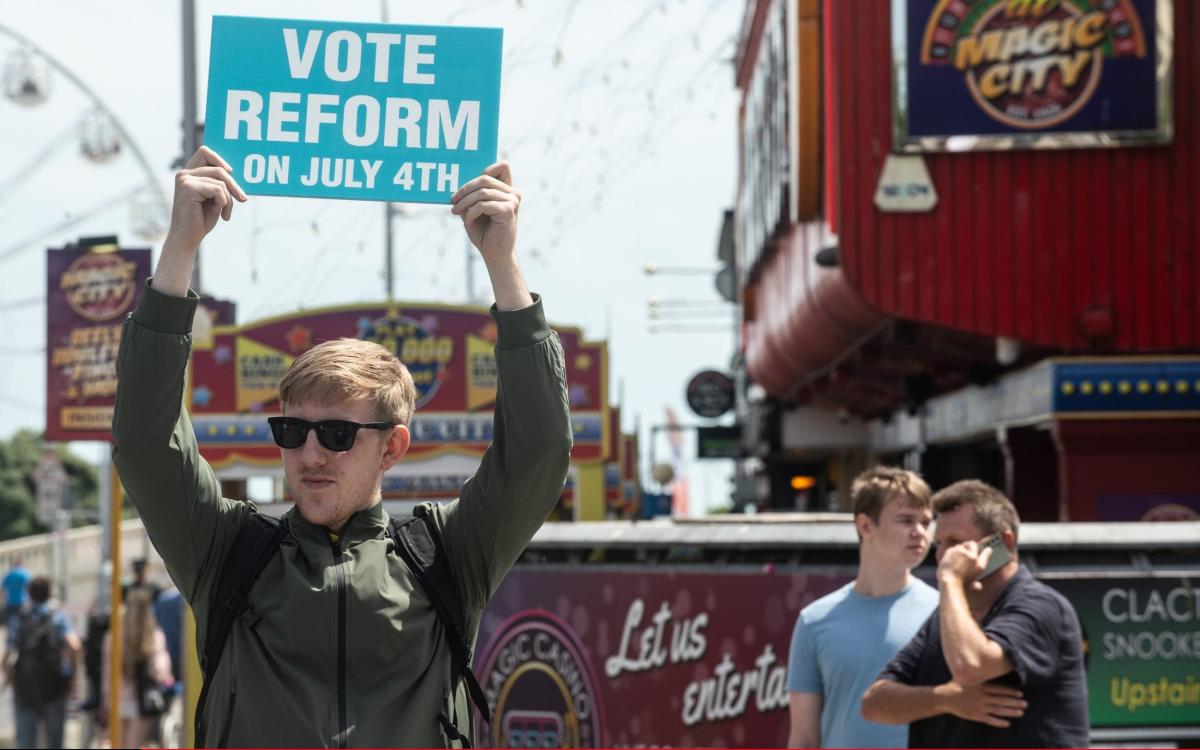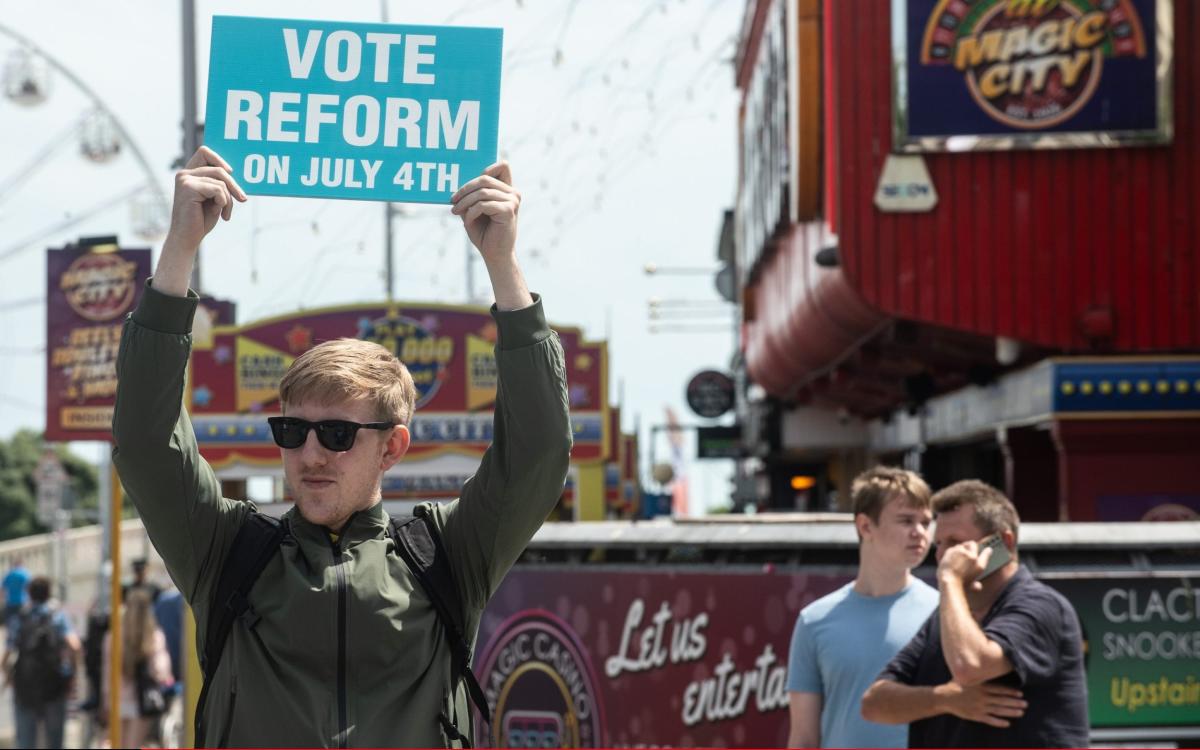
I am a young woman and a recent graduate, and on Thursday I voted Reform. By all metrics of identity politics, my voting record should be redder than a sundried tomato. But I declare the identity politics games are soon to be over, and since the last election I have had to pay income tax and it is time to say it as it is.
Do not be fooled by the bewailing pundits and sour-faced MPs: my vote was not protest. Protest voters did not turn up to the polls – see the measly 1.6 per cent vote increase underpinning the Labour landslide. I voted Reform because Reform has an old guard vision for Britain. It is full of ostentation, pomp, and sentimentality – and I am utterly here for it.
When I think of the England to whom I pledge my life, I think of the England of my childhood: I think of birthday parties in village halls and of summer fetes. I think of woodland and hours spent fashioning swings and sling shots. I think of the shade of churches. I think of rattling buses. I think of skinned knees and cricket played under the baking sun and red telephone boxes and duck ponds. Except, I do not think so much as I remember: it is in these remembrances that Reform has fashioned its vision for Britain’s future.
A vote for a Reform is a vote for preserving green space against mile after characterless mile of cramped Barratt Homes. Reform acknowledges the birth rate is in decline – the need for doctors and homes is not a home-grown issue. A vote for Reform is a vote for not surrendering sovereignty to global bureaucratic superstructures. I do not dream of a cashless society. I want no part of an economic forum or a European union; I am disinterested in seeing my marriage prospects being sent to die in foreign wars. I vote Reform not to see them in charge today but tomorrow.
The Reform vote is a testimony to a different memory of Britain – when children could play in streets in security and freedom and there was a well-turned-out policeman on every street corner. Now, the police are only seen knocking on people’s doors about thought crimes.
People are in mourning and only Reform has publicly recognised that something – many things – have been lost. The one who votes Reform is the one who stares down at the paper which totals their National Insurance deductions and their eyes glaze over as they recall a history when Christian charity nursed and educated the masses, and when hard work begot food and dignity, and when litter did not fringe the grass verges. He is the graduate swallowing antidepressants – he wants children, but he knows, no matter how hard he works, he will never be able to provide a home for them. She is the elderly lady who never voted for the unprecedented speed her community has changed around her in the past 30 years.
A vote for Reform is a foot-stamping screech, “Our nostalgia is not a mirage!”
If I have been ambiguous thus far, let me spell it out. Net Zero, I will not pay for it. Indentured servitude in the service industry, I am done with it. Foreign criminals, you can keep them. Infants are not “assigned” a sex, women are not “womb-havers”. I will not have my tax money fund the mastectomies of girls, and men are not surplus to requirement.
Reform asserts the necessity of telling a particular history of Britain – an ancient history of self-determination. A history where the British were not only colonisers but colonised, one in which tribes were unified against common enemies, and ruthlessness was supplanted by a philosophy which recognised that within in every living thing is a sovereign and dignified spirit that deserves – that possesses a divine right – to forge its own path.
Britain deserves to forge its own path again. It will under Reform. It will not under Labour.
EMEA Tribune is not involved in this news article, it is taken from our partners and or from the News Agencies. Copyright and Credit go to the News Agencies, email news@emeatribune.com Follow our WhatsApp verified Channel





